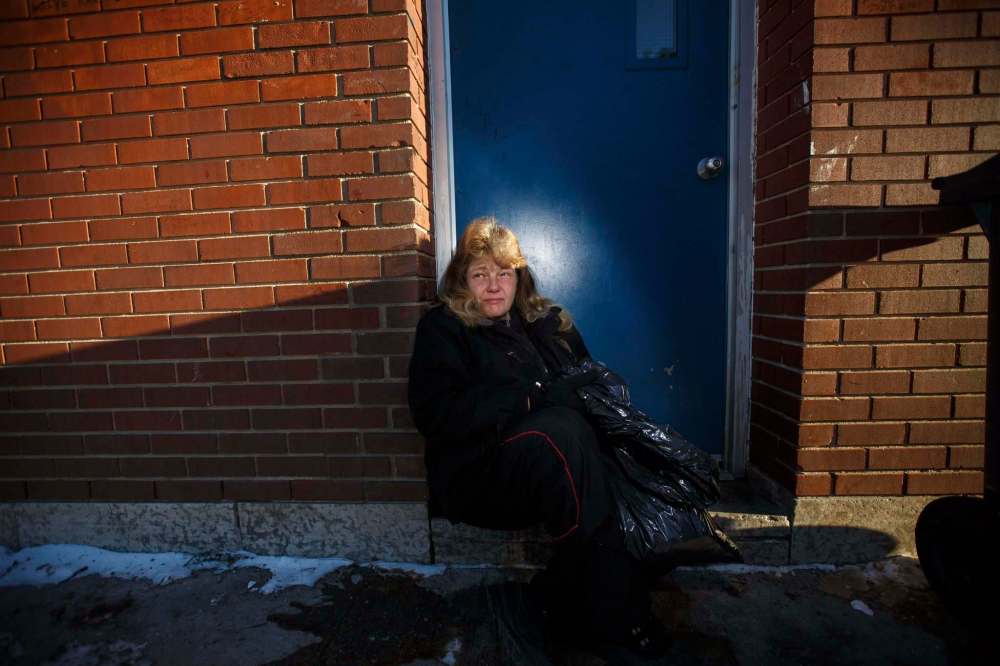For city’s vulnerable, it’s a world of danger and despair
Advertisement
Read this article for free:
or
Already have an account? Log in here »
To continue reading, please subscribe:
Monthly Digital Subscription
$0 for the first 4 weeks*
- Enjoy unlimited reading on winnipegfreepress.com
- Read the E-Edition, our digital replica newspaper
- Access News Break, our award-winning app
- Play interactive puzzles
*No charge for 4 weeks then price increases to the regular rate of $19.00 plus GST every four weeks. Offer available to new and qualified returning subscribers only. Cancel any time.
Monthly Digital Subscription
$4.75/week*
- Enjoy unlimited reading on winnipegfreepress.com
- Read the E-Edition, our digital replica newspaper
- Access News Break, our award-winning app
- Play interactive puzzles
*Billed as $19 plus GST every four weeks. Cancel any time.
To continue reading, please subscribe:
Add Free Press access to your Brandon Sun subscription for only an additional
$1 for the first 4 weeks*
*Your next subscription payment will increase by $1.00 and you will be charged $16.99 plus GST for four weeks. After four weeks, your payment will increase to $23.99 plus GST every four weeks.
Read unlimited articles for free today:
or
Already have an account? Log in here »
Hey there, time traveller!
This article was published 05/01/2018 (2877 days ago), so information in it may no longer be current.
In the middle of night on the streets of Winnipeg, sometimes it’s so cold, Deborah Siemens gets concerned for her safety.
It’s a situation she knows well after enduring two years of homelessness in Winnipeg, an existence she says grinds people down, leaving most incapable of even trying to improve their lot.
Hearing of the recent death of Windy Gayle Sinclair — a mother of four found Dec. 28 dead and frozen in a city back alley — didn’t come as a surprise to Siemens, who’s spent many nights on the streets in the coldest months of winter.

“It takes me two seconds to freeze now. I’m missing fingernails and I’m missing toenails, from nearly freezing to death. If there’s no room for you (at the shelter)… you can’t go nowhere,” Siemens, 50, said.
“There’s no place to sleep. There’s no place to go. If you don’t have money, you can’t sit in a restaurant. You can’t use their bathrooms. You can’t go in people’s doorways. You can’t warm up. It doesn’t take long to freeze.”
These days, Siemens says she knows Winnipeg’s shelter system well, often ending up with a bed or mat at night. But even knowing the system isn’t a guarantee. And for those struggling with addiction, it’s even harder to get a space.
Either way, once all the spots are taken, there aren’t many options but to sleep outside.
On nights like that, Siemens says some of city’s homeless population resorts to creating makeshift tents or shelters in an effort escape the elements.
But whatever refuge from the cold the makeshift shelters offer, they also make you a target for law enforcement or people looking to rob you, she said.
“We do what we got to do. You get dirty old blankets, you find supports, old tents, whatever. You put it together, make a spot, stay there as long as you can. Then someone either comes and steals your (expletive), or rips it down. That’s what you’ve got to do,” Siemens said.
For people who don’t have access to supplies, often the only choice is to go from doorway to doorway to try and get out of the wind, or to look for vacant, abandoned buildings and shack up for the night.
Having to turn people away in the middle of winter, knowing they have nowhere else to go, is something that “rips at your heart,” said Jim Bell, chief executive officer of Siloam Mission, which runs one of the city’s shelters. That’s why the organization is currently funding an expansion to its shelter, which will allow it to house 60 additional beds, some of which will be in a new space devoted exclusively to women.
“If we had those beds, hopefully we wouldn’t have to be turning anyone away. But right now, we’re consistently full. When the weather presents the challenges it does this time of year, we need to make sure we’re working together so people aren’t sleeping on the streets at night,” Bell said.
“One death because of the cold, is one too many. It is dangerous when the elements are such as they are now. We need to be mindful of what can happen.”
Siemens says when you don’t have a place to stay, you have to prioritize carrying only things that help keep you warm and alive — blankets, coffee and water bottles, snow pants, mittens and tuques.
The cold isn’t the only risk posed to the city’s homeless population, which is often the target of violence. For women, it’s even worse, as they don’t only have to worry about being assaulted and robbed, but also various forms of sexual violence and exploitation, she says.
Siemens says many people who end up on the streets don’t do so because they have a drug problem or have lost all their possessions. But often those things come after one ends up homeless.
“Half the people who are homeless weren’t intoxicated people to begin with. People think we’re all drunks and rehabs, but that comes over time, with being down here,” she said.
“You get defeated. You get used to being down here.”
When asked if she has hope for her future, Siemens shook her head.
“I don’t never have hope, that’s a double-edged sword. A lot of people just think they’re stuck here. But I just keep trying. I don’t know, just keep trying.”
ryan.thorpe@freepress.mb.caTwitter: @rk_thorpe
History
Updated on Friday, January 5, 2018 7:42 AM CST: Adds photo


